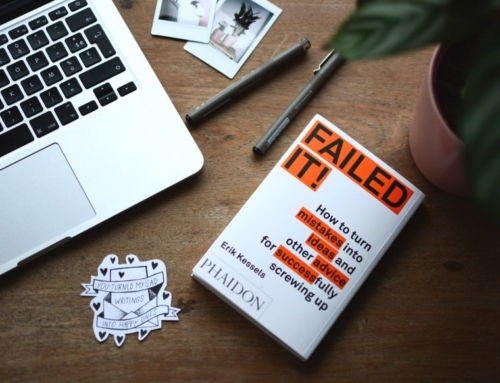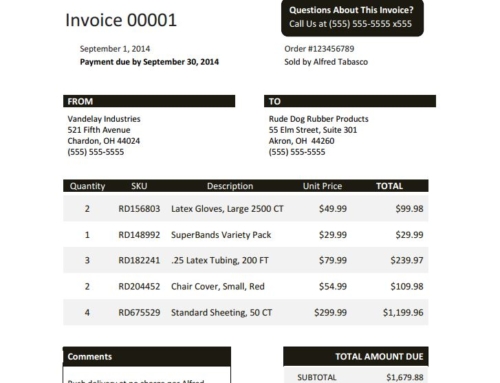INTRODUCTION
The best way to ensure you collect on unpaid accounts is reaching out to customers personally and talking with them on the phone. It is much harder for a customer to ignore an email than it is for them to ignore your phone calls. It is also much harder for a customer to give excuses when they are speaking with you than it is to put time and thought into the excuse email they send you. Overall, collection calls are the most effective way to get customers to pay on time.
On the flip side, who really has the time to make phone calls to every single customer that needs to pay and then follow up with them a week or two later? It takes time to find the customer information, prepare for the call with information about their account and have a conversation with the person on the other line. This is where phone call management comes in. This whitepaper will cover what collection call management is, why it is important, how it works and some real collection call scripts to use in your process.
WHAT IS COLLECTION CALL MANAGEMENT
Collection call management is a way to organize and automate the accounts receivable phone call process. Every time you log into an accounts receivable software solution with collection call management, you can see exactly who needs to be called and when. All the information for each customer can be found in one spot. This includes information such as the customer’s current balance, past due invoices, paid invoices, communication notes, emails and past phone call notes. Additionally, you can make a phone call right from the customer’s account screen. That call will then be recorded and transcribed back into their customer notes.
If a customer were to call you to get their balance and account information, you could end up fielding those calls all day. Collection call management for accounts receivable allows the customers to self-serve this process by calling into a menu where they can access their personal information. This saves tons of time that can be better spent calling accounts that simply have chosen not to pay.
The point of collection call management is to be able to easier access customer information so calls can be made more quickly and frequently. The system allows for better notes to be taken on the phone calls by recording and transcribing, allowing collection representatives to focus on having a productive conversation with the customer. All of these features simply add up to collecting more with less effort.
HOW IT WORKS
A collection call management system eliminates the need to prepare for phone call conversations with customers. Without it, collectors may go through a list of customers and try to decide who needs to be called first. Then they look up those customer’s account information to find exactly what is due, what the invoice numbers were, how much has already been paid and more. After all this has been done, collectors have probably already spent five minutes on each call, before even making it. Once the call is made, the collector then needs to take note of what had been discussed and schedule a follow-up phone call, if needed.
Collection call management eliminates a lot of these preparation and follow-up steps, allowing for phone calls to customers to be a much shorter process. Below, we highlight the steps to take in order use the Lockstep Collect collection call management system to illustrate how much easier making accounts receivable phone calls can be.
Outbound Calls
- Create a New Communication with the Customer
- Select the contact to call and click the “Make a Call” button
- The automated Lockstep Collect Call Manager makes the call to the customer
- Once the call is completed, the automated Lockstep Collect Call Manager ends the call and marks whether it was successful and whether a follow up call is needed
- A recording and transcript is saved in this customer’s communication notes for future reference
Inbound Calls
- When a customer calls, the automated Lockstep Collect Call Manager answers the call and ties the phone number to an existing account
- The automated Lockstep Collect Call Manager prompts the customer with 4 options: Balance, Last Invoice, Last Payment or Speak with an Agent
- If the customer chooses to speak with an agent, the call manager connects the call to the appropriate collections representative. If the agent isn’t available, the customer can leave a voicemail
- When the call is ended, a recording and transcription is attached to the customer notes with every action they took on the call.
All in all, a majority of these steps are taken by the automated Lockstep Collect system. All the collection representative has to do is make the call and have a conversation with the customer. If a customer calls in, sometimes the collection representative doesn’t even need to speak with them. This allows more time to spent on the accounts that must be collected, instead of spending your time answering phone calls wondering what their outstanding balance is.
WHY YOU SHOULD BE RECORDING YOUR CALLS
The greatest feature of using phone call management is having the ability to record collection calls. Possessing a recording of your phone conversations has a wealth of benefits for the accounts receivable department, such as transparency or eliminating excuses for non-payment. Further, it holds the collection representative accountable for their professionalism, as well as the customer. Recording collection calls in accounts receivable only makes collecting easier and more efficient.
Below are a few benefits of using a phone call management system that records conversations for the accounts receivable process.
When you are recording accounts receivable conversations with customers, and the customer is aware they are being recorded, it is a lot harder to come up with excuses or agree to something they know they won’t follow up on. If that same customer doesn’t follow up on their payment agreement, you then have a verbal agreement from them recording which makes it more difficult for them to back out on. Which brings us to our next benefit.
When everything is recorded there is accountability on both the side of the customer and the collection representative. If a customer promises to pay by a certain date, you have that recorded and saved for future reference and hold that customer accountable with the recording. This is especially helpful in situations where the debt is taken to court. The collection representative is also held accountable for how they handle situations with customers. If a customer complains because they claim the collection representative was rude to them, you now know for sure instead of a “he said, she said” situation.
Recording collection calls creates transparency in the department. This will allow managers to check and see what practices the collection representatives are using and how they can approve. It allows the sales department to check in when a customer reports a discrepancy in payment. All of these scenarios allows for an easier order to cash cycle and a more efficient accounts receivable department.
Recording collection calls using a phone call management system is an easy thing to do, and brings about great results. With a phone call management system, you’re able to record every phone call without even pressing a button. It simply records every call made to and from the accounts receivable number. Without any extra effort, the accounts receivable department becomes more transparent, more accountable and eliminates any excuses or broken promises to pay from customers.’
USING IVR FOR COLLECTION CALL MANAGEMENT
When using phone call automation for accounts receivable, the most popular option to do this is using interactive voice response or IVR. Even if you have never used IVR before, you likely have encountered it and used it before. Recall a time you called a company and were prompted with menu options. Maybe you called your cell phone company and had the option of pressing 1 to pay your bill, pressing 2 to change your plan or pressing 3 to speak with a representative. This is IVR at work.
IVR is an automated telephony system that can make a connection from a computer to a human. This allows companies to handle large volumes of calls either inbound or outbound. A prerecorded menu can be added to the IVR system to allow customers to self-serve their needs.
This is extremely helpful to the accounts receivable process. If you get a large number of inbound calls from customers asking for information on things like balances, past invoices or past payments, they can get this information on their own from the prerecorded menu. This frees up time that would take up hours of the collection representative’s day. Instead of manually searching for every customer’s information and what they still owe whenever they call in. When making outbound calls, the collection representative now doesn’t even need to pick up the phone. They can simply make calls from their computer with all the customer information pulled up in front of them.
COLLECTION CALL SCRIPTS
Initial Collection Call Procedure
Hello, may I speak to Emily Brown? This is John Smith from Lockstep Collect. (Emily gets on the phone) Hi Emily, this is John Smith from Lockstep Collect calling about your balance due of $150.00 on invoice # 123. I am calling to find out if this invoice has been processed and the check mailed? STOP and wait and listen.
Some things Emily might say and how you can respond:
Excuse #1
We didn’t receive invoice #123…..
We sent a copy in the box with your order; did you receive your order?
OR
I am just sending it to you attached to an email right now, can you check your email?
Excuse #2
The price on invoice #123 doesn’t match our PO so I can’t process this for payment.
I have a copy of your PO#432 here and you listed an incorrect price of $1.00 each when the correct price is $1.25 each. How can we correct your PO?
OR
Did you receive the order? (Emily says yes) Great, can you process the invoice for the amount you are not disputing in the meantime? I will fax over a copy of our pricing agreement and the invoice. (Many times companies have special pricing that they agree to and have signed contracts to support this.
Excuse #3
The check is on Frank’s desk to be signed, he just hasn’t signed it yet and he is out today.
Can I have Frank’s direct number so I can leave him a voice mail? Get the number and call Frank and leave a message. Then pull out your credit application or contract and see who signed that, then give that person a call. Create some urgency about the payment so that it gets priority.
AND/OR
contact the salesman who made the sale and get that person involved in helping you to get paid.
Excuse #4
I do have the invoice but we are in a cash crunch and I don’t know when it will be paid.
Emily, I am sorry to hear that, but I have to report to my boss or supervisor this afternoon and let them know your intentions in regards to this past due invoice, so let’s come to an agreement on payment for this balance so that I can let them know your intentions at our meeting. Otherwise, your account will escalate out of my hands and my boss will be giving your boss a call about it.
OR
Can you send a partial payment towards this invoice today so I can let my supervisor know you have made a payment towards this balance? Ask for 80% of the balance and work your way down from there. Confirm the payment agreement, and send a confirmation letter.
Phone Call #2 Follow-Up Procedure
Hello. This is John Smith from the credit department at Lockstep Collect . I am calling to discuss Invoice 123. We haven’t received payment yet. We need to resolve this issue to assure that it doesn’t have a negative impact on our business relationship going forward. I reviewed the notes in our system and I see that we talked about this invoice earlier and there were no remaining issues for non-payment. Can you help me understand why we haven’t received a payment?
I completely forgot to make a payment, I am sorry and will do that now.
Thank you again for your assistance. Please let me know if there’s any way I can help you further. I’ve notified our accounting department to watch for your payment. Take care and have a great day. Goodbye.
Phone Call #3 Follow-Up Procedure
I have called you twice regarding this issue. This matter is becoming increasingly important and we need to resolve this matter to ensure that we can continue providing quality products and services for your company . If we cannot resolve this issue then it could lead to a disruption in your services. Can you help me understand why the invoice hasn’t been paid?
Customer will explain why payment hasn’t been processed. This could be due to a dispute in which case you can refer to the Invoice Dispute call script. Escalate this immediately to senior management if there is a bigger reason why the customer won’t pay the past due balance. If there is no reason for non-payment and the customer says they will pay you.




